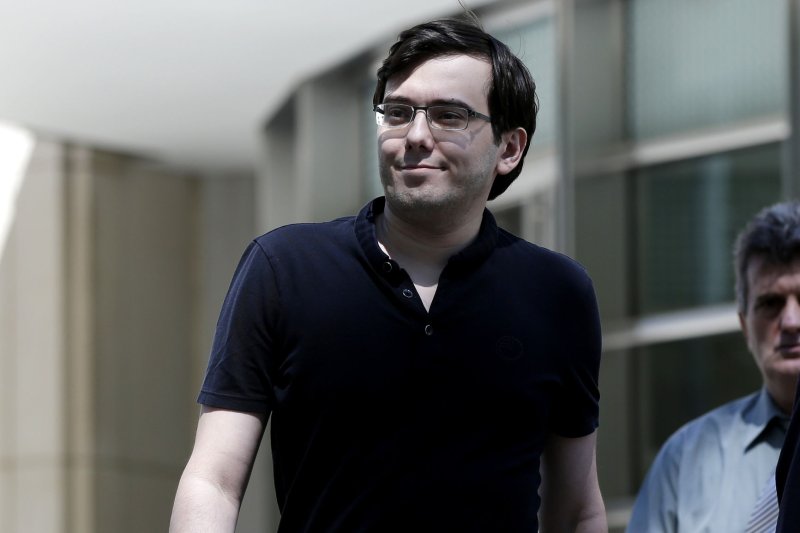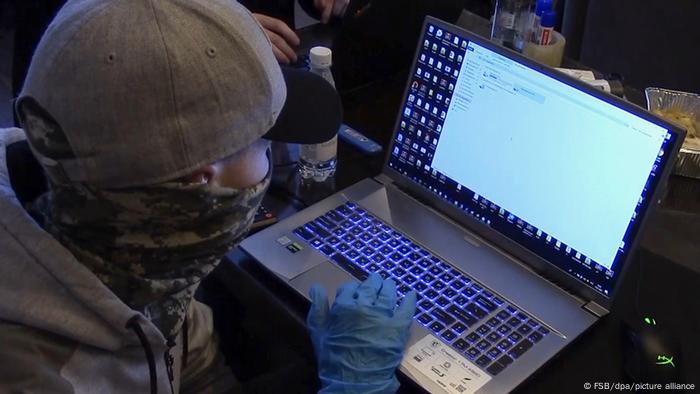Robert Jones
CBC

A recently widowed Saint John woman has been given notice of a 74 per cent rent increase on the apartment she shared with her late husband after an Ontario company bought her apartment building.
"You just can't come in and slap a 74 per cent rent increase on someone who is 66 years old on a pension," said Roxanne Cormier. She wants to see New Brunswick place limits on large rent increases people like her are experiencing.
"To me, it's unethical, it's not fair, and it's inhumane."
Cormier lost her husband in October. The couple have rented an apartment in a building on Sussex Drive in Saint John's north end for the last decade and most recently had been paying $775 per month.
In November, a numbered Ontario company set up by a Toronto real estate investor and an Alberta man bought the 50-year-old, six-unit structure for $746,000. That's double what the building sold for in 2011 and nearly double what assessors with Service New Brunswick still value it to be worth.
On Dec. 31, Cormier found an envelope taped to her apartment door with a letter inside informing her of a $575 per month increase in rent effective April 1, even though new rules in New Brunswick require tenants be given six months notice.
"The rent is increasing $575.00 from the current payment of $775.00 to the new rate of $1,350.00 per month," read the letter from the new property manager.
"Thank you for your anticipated cooperation in this matter."
A recently widowed Saint John woman has been given notice of a 74 per cent rent increase on the apartment she shared with her late husband after an Ontario company bought her apartment building.
"You just can't come in and slap a 74 per cent rent increase on someone who is 66 years old on a pension," said Roxanne Cormier. She wants to see New Brunswick place limits on large rent increases people like her are experiencing.
"To me, it's unethical, it's not fair, and it's inhumane."
Cormier lost her husband in October. The couple have rented an apartment in a building on Sussex Drive in Saint John's north end for the last decade and most recently had been paying $775 per month.
In November, a numbered Ontario company set up by a Toronto real estate investor and an Alberta man bought the 50-year-old, six-unit structure for $746,000. That's double what the building sold for in 2011 and nearly double what assessors with Service New Brunswick still value it to be worth.
On Dec. 31, Cormier found an envelope taped to her apartment door with a letter inside informing her of a $575 per month increase in rent effective April 1, even though new rules in New Brunswick require tenants be given six months notice.
"The rent is increasing $575.00 from the current payment of $775.00 to the new rate of $1,350.00 per month," read the letter from the new property manager.
"Thank you for your anticipated cooperation in this matter."

© Eve Panaguiton/Facebook Eve Panaguiton is a Toronto-based real estate investor and deal maker who was behind the purchase of a six-unit building on Sussex Drive in Saint John in November. Tenants there have been hit with rent increase notices of up to 74 per cent. 'Landlords make money when they sleep,' she says on her social media pages.
Cormier said others got similar notices, including a tenant in her late 80s, who has lived in the building for 40 years.
"I got really mad and I thought 'OK, this is unethical'," said Cormier, who called in a complaint about her short notice and the size of her increase to New Brunswick's Residential Tenancies Tribunal.
"I am already seeing someone professionally for grief counselling, so I didn't really need to have this added stress," she said
"Where will I go? I just have CPP, Old Age and my widow's allowance. So it's like, where do I go? I was quite upset."
Sharon Delong is 72 and until recently was a neighbour of Cormier's in the same building. She was wary about what new owners might do and moved out in November after 37 years, just one month before the rent increase was announced.
"I could see the writing on the wall as soon as the place was going up for sale," said Delong, who raised both of her children in the building.
"I got out of there at a good time, but I really feel badly for the other tenants. I mean, this is not right. People are being taken advantage of. This is affecting the people living there all their lives. They're on a limited income and they have this happen. Where do they go? I think something has to be done."
Cormier said others got similar notices, including a tenant in her late 80s, who has lived in the building for 40 years.
"I got really mad and I thought 'OK, this is unethical'," said Cormier, who called in a complaint about her short notice and the size of her increase to New Brunswick's Residential Tenancies Tribunal.
"I am already seeing someone professionally for grief counselling, so I didn't really need to have this added stress," she said
"Where will I go? I just have CPP, Old Age and my widow's allowance. So it's like, where do I go? I was quite upset."
Sharon Delong is 72 and until recently was a neighbour of Cormier's in the same building. She was wary about what new owners might do and moved out in November after 37 years, just one month before the rent increase was announced.
"I could see the writing on the wall as soon as the place was going up for sale," said Delong, who raised both of her children in the building.
"I got out of there at a good time, but I really feel badly for the other tenants. I mean, this is not right. People are being taken advantage of. This is affecting the people living there all their lives. They're on a limited income and they have this happen. Where do they go? I think something has to be done."

© Robert Jones / CBC News This building on Sussex Drive in Saint John was built in the late 1960s. Service New Brunswick assesses it to be worth $396,800, but investors paid $746,000 for it in November.
The deal to buy the Sussex Drive building was put together by Toronto investor Eve Panaguiton, who calls herself "Real Estate Eve" and a "BRRRR specialist" (buy, rehab, rent, refinance, repeat) on her social media accounts.
Panaguiton did not respond to attempts to contact her about what is happening with the Saint John property, but in a talk earlier in 2021 posted on YouTube, she said she was "working on buying multiplexes out of town" after raising $7 million from investors in 2020.
Panaguiton acts as a managing partner in purchases by putting properties and buyers together and then splitting profits on deals "50/50."
Mortgage documents show Edmonton resident David Gordon Kirschner partnered with Panaguiton to form the numbered company that now owns the Sussex Drive building.
In New Brunswick, there is no set upper limit on how much rent can be increased by a landlord.
The deal to buy the Sussex Drive building was put together by Toronto investor Eve Panaguiton, who calls herself "Real Estate Eve" and a "BRRRR specialist" (buy, rehab, rent, refinance, repeat) on her social media accounts.
Panaguiton did not respond to attempts to contact her about what is happening with the Saint John property, but in a talk earlier in 2021 posted on YouTube, she said she was "working on buying multiplexes out of town" after raising $7 million from investors in 2020.
Panaguiton acts as a managing partner in purchases by putting properties and buyers together and then splitting profits on deals "50/50."
Mortgage documents show Edmonton resident David Gordon Kirschner partnered with Panaguiton to form the numbered company that now owns the Sussex Drive building.
In New Brunswick, there is no set upper limit on how much rent can be increased by a landlord.

© CBC News file photo Service New Brunswick Minister Mary Wilson told the legislature in November there is no set amount of a rent increase in New Brunswick that is too high. 'We cannot put a dollar amount on what is reasonable,' she said.
In November, Mary Wilson, the minister responsible for the Residential Tenancies Tribunal, told the legislature there is "no numerical threshold" for judging when a rent increase is too high.
"We cannot put a dollar amount on what is reasonable," Wilson said.
However, the tribunal can strike down a rent increase if a tenant files an objection within 30 days and an investigation finds the new amount is above market rates in the area "based on the unit's current condition compared to similar units in the same neighborhood."
According to figures kept by the tribunal, it has had 21 applications for a "revision of a rent increase" since New Brunswick laws were updated on Dec. 17. Seven applications have been successful so far and 14 are still pending.
Rent increases that are denied apply only to the tenant who has objected and not to others in a building who may have gotten similar increases but have not filed an objection.
"The Residential Tenancies Tribunal is only able to review a rental increase if the tenant submits a request," said Jennifer Vienneau, the communications director with Service New Brunswick.
Landlords denied a rent increase can raise the rent by a lesser amount by issuing a new notice.
Cormier's property manager initially disputed she was entitled to six months' notice but has since acknowledged she was right and has agreed to reissue rent increase letters to tenants in the building
Cormier said she would like to see renters receive protections similar to what New Brunswick homeowners have against spikes in their property tax bills.
Without renovations, New Brunswick homeowners cannot be charged property tax on assessment increases above 10 per cent in a single year. Increases above that have to be phased in over multiple years.
"I understand you have to put rent up," she said. "But if it needs to be five hundred more dollars, then you need to do it once a year in increments."
"What about the little person? We have to have some protection."
In November, Mary Wilson, the minister responsible for the Residential Tenancies Tribunal, told the legislature there is "no numerical threshold" for judging when a rent increase is too high.
"We cannot put a dollar amount on what is reasonable," Wilson said.
However, the tribunal can strike down a rent increase if a tenant files an objection within 30 days and an investigation finds the new amount is above market rates in the area "based on the unit's current condition compared to similar units in the same neighborhood."
According to figures kept by the tribunal, it has had 21 applications for a "revision of a rent increase" since New Brunswick laws were updated on Dec. 17. Seven applications have been successful so far and 14 are still pending.
Rent increases that are denied apply only to the tenant who has objected and not to others in a building who may have gotten similar increases but have not filed an objection.
"The Residential Tenancies Tribunal is only able to review a rental increase if the tenant submits a request," said Jennifer Vienneau, the communications director with Service New Brunswick.
Landlords denied a rent increase can raise the rent by a lesser amount by issuing a new notice.
Cormier's property manager initially disputed she was entitled to six months' notice but has since acknowledged she was right and has agreed to reissue rent increase letters to tenants in the building
Cormier said she would like to see renters receive protections similar to what New Brunswick homeowners have against spikes in their property tax bills.
Without renovations, New Brunswick homeowners cannot be charged property tax on assessment increases above 10 per cent in a single year. Increases above that have to be phased in over multiple years.
"I understand you have to put rent up," she said. "But if it needs to be five hundred more dollars, then you need to do it once a year in increments."
"What about the little person? We have to have some protection."





























